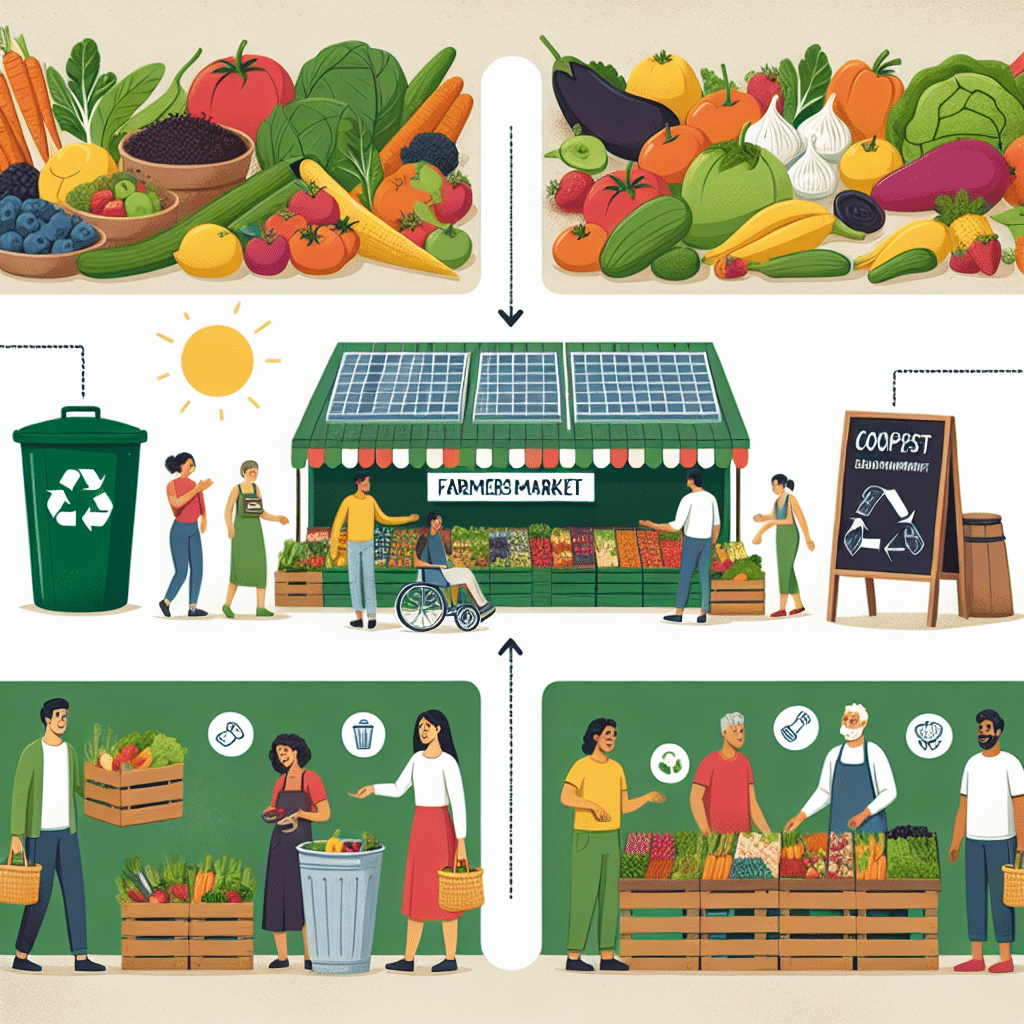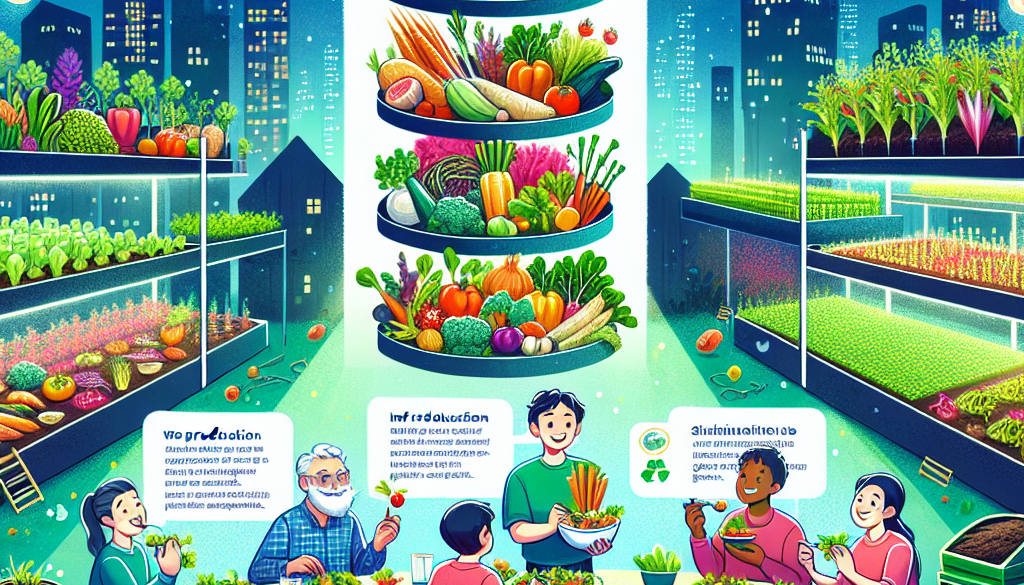What is the Significance of Sustainable Food Practices?
-
Table of Contents
- Sustainable Food Practices: Ensuring a Healthier Planet and Population
- Understanding Sustainable Food Practices
- The Environmental Impact of Sustainable Food Practices
- Economic Benefits of Sustainable Food Practices
- Health and Nutritional Advantages
- Challenges and Moving Forward
- Conclusion: The Imperative of Sustainable Food Practices
- ETprotein: A Step Towards Sustainable Nutrition
Sustainable Food Practices: Ensuring a Healthier Planet and Population

The significance of sustainable food practices cannot be overstated in our rapidly changing world. With the global population expected to reach 9.7 billion by 2050, the demand for food will inevitably increase. This surge in demand poses a significant challenge to our already strained natural resources. Sustainable food practices offer a pathway to meet this challenge head-on, ensuring that we can feed the world’s population without compromising the health of our planet or future generations.
Understanding Sustainable Food Practices
Sustainable food practices encompass a broad range of activities that aim to protect the environment, support the livelihoods of farmers and communities, and provide nutritious food that is accessible to all. These practices include, but are not limited to:
- Organic farming
- Local sourcing of food
- Reducing food waste
- Implementing fair trade principles
- Conserving water and soil
- Protecting biodiversity
- Reducing greenhouse gas emissions
The Environmental Impact of Sustainable Food Practices
Conventional agriculture has been linked to numerous environmental issues, including deforestation, water scarcity, soil degradation, and biodiversity loss. Sustainable food practices aim to mitigate these impacts through various means:
- Reducing Carbon Footprint: Sustainable farming methods can significantly lower greenhouse gas emissions. According to the Food and Agriculture Organization (FAO), the agriculture sector accounts for approximately 24% of global greenhouse gas emissions. By adopting sustainable practices, this number can be reduced.
- Conserving Water: Agriculture is responsible for about 70% of global freshwater withdrawals. Sustainable practices such as rainwater harvesting and drip irrigation help conserve water.
- Preserving Soil Health: Sustainable farming practices like crop rotation and the use of organic fertilizers maintain soil fertility and prevent erosion.
- Protecting Biodiversity: By avoiding monocultures and using integrated pest management, sustainable farms support a wider range of species.
Economic Benefits of Sustainable Food Practices
Adopting sustainable food practices not only benefits the environment but also has significant economic advantages:
- Cost Savings: Sustainable practices can lead to reduced costs for farmers by minimizing inputs like synthetic fertilizers and pesticides.
- Market Opportunities: There is a growing market for sustainably produced food, with consumers increasingly willing to pay a premium for such products.
- Job Creation: Sustainable agriculture can create jobs in rural areas, contributing to local economies.
Health and Nutritional Advantages
Sustainable food practices also have direct benefits for human health:
- Reduced Exposure to Chemicals: Organic and sustainable farming methods reduce the use of harmful pesticides and chemicals, leading to healthier food products.
- Improved Nutritional Content: Studies have shown that sustainably grown produce can have higher levels of certain nutrients compared to conventionally grown counterparts.
- Food Security: Sustainable practices contribute to food security by ensuring a stable supply of food that is resilient to climate change and other global challenges.
Challenges and Moving Forward
Despite the clear benefits, there are challenges to implementing sustainable food practices on a global scale. These include the need for policy support, investment in sustainable technologies, and education for farmers and consumers. However, the transition to sustainable food systems is not only possible but necessary for the well-being of our planet and its inhabitants.
Conclusion: The Imperative of Sustainable Food Practices
In conclusion, the significance of sustainable food practices lies in their ability to address environmental, economic, and health concerns simultaneously. By adopting these practices, we can ensure a more resilient food system that can withstand the pressures of a growing population and a changing climate. The key takeaways from this discussion highlight the need for a collective effort to promote sustainability in our food systems, from the farm to the table.
ETprotein: A Step Towards Sustainable Nutrition
In line with sustainable food practices, ETprotein offers a range of organic bulk vegan proteins that cater to the growing demand for environmentally friendly and health-conscious dietary options. Their products, including Organic rice protein, pea protein, and various seed proteins, are non-GMO, allergen-free, and boast a high purity level of L-(+)-Ergothioneine. By choosing ETprotein, consumers and manufacturers can contribute to a more sustainable food system while enjoying high-quality protein sources.
About ETprotein:
ETprotein, a reputable protein and L-(+)-Ergothioneine (EGT) Chinese factory manufacturer and supplier, is renowned for producing, stocking, exporting, and delivering the highest quality organic bulk vegan proteins and L-(+)-Ergothioneine. They include Organic rice protein, clear rice protein, pea protein, clear pea protein, watermelon seed protein, pumpkin seed protein, sunflower seed protein, mung bean protein, peanut protein, and L-(+)-Ergothioneine EGT Pharmaceutical grade, L-(+)-Ergothioneine EGT food grade, L-(+)-Ergothioneine EGT cosmetic grade, L-(+)-Ergothioneine EGT reference grade and L-(+)-Ergothioneine EGT standard. Their offerings, characterized by a neutral taste, non-GMO, allergen-free attributes, with L-(+)-Ergothioneine purity over 98%, 99%, cater to a diverse range of industries. They serve nutraceutical, pharmaceutical, cosmeceutical, veterinary, as well as food and beverage finished product distributors, traders, and manufacturers across Europe, USA, Canada, Australia, Thailand, Japan, Korea, Brazil, and Chile, among others.
ETprotein specialization includes exporting and delivering tailor-made protein powder and finished nutritional supplements. Their extensive product range covers sectors like Food and Beverage, Sports Nutrition, Weight Management, Dietary Supplements, Health and Wellness Products, and Infant Formula, ensuring comprehensive solutions to meet all your protein needs.
As a trusted company by leading global food and beverage brands and Fortune 500 companies, ETprotein reinforces China’s reputation in the global arena. For more information or to sample their products, please contact them and email sales(at)ETprotein.com today.












